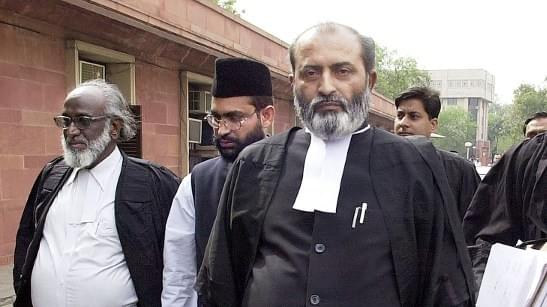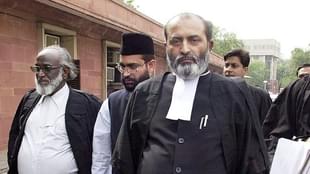Commentary
The Curse of The Muslim Personal Law Board
Ali Mirza
Oct 02, 2014, 08:02 PM | Updated Apr 29, 2016, 12:41 PM IST
Save & read from anywhere!
Bookmark stories for easy access on any device or the Swarajya app.


For the sake of preserving a perverse version of multiculturalism, the majority community of India has pandered to the whims and narrow interests of the self-appointed spokesmen of Muslims.
The All India Muslim Personal Law Board (AIMPLB) is the most influential non-government agency working to protect the Muslim Personal Law today in India. After the Khilafat movement, this was a significant step taken by leaders of the Muslim society to bring their communities on a common platform for safeguarding Islamic values.
In Dec 1972, Muslim politicians and Islamic scholars of different schools of thought gathered in Mumbai and exhibited astounding unity. They resolved all their differences for a much greater cause – which was to safeguard the “rights” of Muslims as per Islamic law or Sharia. Due to the varying interpretations of Sharia law, the Board later suffered splits when Shias and Muslim Feminists seceded to form their own separate Boards – All India Shia Personal Law Board (AISPLB) and the All India Muslim Women’s Personal Law Board (AIMWPLB).
Ever since its formation, the AIMPLB has rarely initiated programs which could have helped in the progress of Muslim community. Yet, significant sections of the Sunni Muslims look up to the board for guidance on Islamic matters. Because of the support the board receives, they are empowered to act as advocates in perpetuity of Muslim orthodoxy and pander to their regressive brand of politics.
Here are some reasons why I think the AIMPLB has been a major hindrance to the progress of the Muslim community and how it’s responsible for ensuring the majority Muslims are not constructively involved in the mainstream:
- Guardians of regressive personal laws
The Indian judiciary has always maintained that the personal law prevails in family matters unless it conflicts with the Constitution, or a later Act. As a result, lakhs of Muslim women have been denied fair marriage, divorce, adoption and property rights. AIMPLB has actively worked to protect regressive anti-women laws citing religious reasons. Although rare in India, many Muslim men do practice polygamy. Whether it’s the notorious Triple Talaq or the highly unjust process of the ‘Khula’, most women are at the mercy of their husbands when it comes to divorce and marriage matters. Their inheritance and property rights aren’t equitable in any way. Child adoption still remains a contentious issue. The Shabnam Hashmi case is a good example. The AIMPLB is also opposed to Prohibition of Child Marriage Act (PCMA), which overrides over provisions of the Muslim Personal Law.
- Attempts to legitimize Sharia courts/Dar- ul- Qaza
The Supreme Court has declared time and again that Sharia courts run by Muslim clerics have no legal sanction and their decisions are not binding on community members. Yet there have been innumerable attempts made by the AIMPLB to legitimize Dar-ul-Qaza or “parallel Islamic courts”, ignoring the fact that these courts are unconstitutional.
- Hostility towards the Ahmadiyya community
The AIMPLB doesn’t consider Ahmadiyyas Muslims at all. In fact some of the board members like Imam Bukhari, have vociferously protested against the religious freedom of the Ahmadiyya community.
- Opposition to Right to Education Act (RTE)
The AIMPLB believes that the amendments in RTE act will act as slow poison and ensure the madarsas lose their identity. Looking at the dreadful condition of the madarsas today, I don’t think it’s such a bad idea.
- Creeping Islamic Fundamentalism
The AIMPLB is constantly scrutinizing the Anglo-Mohammedan law – which forms the Muslim personal law today (it was largely formulated on the basis of The Hidayah – book written by Mirghayani, a Hanafi scholar ). As the Islamic intelligentsia shifts its focus towards a more literal/extremist Salafist/Wahabbi ideology of Islam, instances like banning women from Dargahs and protests against people like Salman Rushdie are going to become far more common.
The conflict between personal laws and fundamental rights is both a legal and sociological issue. For the sake preserving a perverse version of multiculturalism, the majority community of India has pandered to the whims and desires of the self-appointed spokesmen of minorities.
The religious Muslim leadership has constantly refused to accept that in a secular, modern polity the functional unit must be the individual, and not the community. They have steadfastly refused to engage with the secular Indians on the much needed Uniform Civil Code. With prominent bodies like the AIMPLB advocating a status quo on the marriage of religion and obscurantist collectivism, the only path the community will head towards is that of isolation and stagnation. The Board will even attempt to garner support of the regressive elements across other communities to oppose a UCC.
For too long now, the appeals made by the secularists on reform, and opposition to regressive laws has wrongfully been associated with a cunning majoritarian agenda. The proponents of “majoritarianism” can be accused of tolerating the intolerant in this case.
It’s the right time for the cause of a common civil code to go beyond empty generalities. The BJP led NDA government should present to the nation at least some specific guidelines and details on how they will begin implementing the UCC. It’s a battle of progress versus Regress. The supporters of AIMPLB should introspect which side of the divide they want their community to be.





